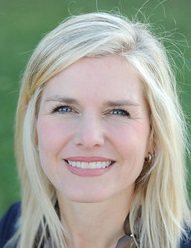At a local coffee shop on a recent Saturday morning, I sat at a round table cradling a coffee mug and gabbing with friends. The café buzzed with activity, and our table mirrored the energy of the room.
One friend took a sip and smiled.
“I’ve started a new job,” she gushed. “It’s such a great fit for our family.”
“Congratulations,” echoed around the table.
“That’s great news,” another friend lauded while tenderly squeezing her hand. “Tell us more about the position.”
We listened as our newly employed friend bubbled over everything from spreadsheets to work wear. Her enthusiasm rippled through the group.
Minutes later, she shifted the conversation back to the others. “What’s going on with everyone else?” she asked taking a bite of a cranberry scone.
Another friend cleared her throat and began, “I started to volunteer at the local homeless shelter. I’m just loving my time with the women.”
“That’s amazing,” the table cheered in unison.
Our big-hearted friend effervesced over meaningful conversations and Bible studies with the women in the shelter. Her fervor radiated in her words.
When the conversation waned, a third friend jumped in to discuss her newfound commitment to better health.
“I’ve just never felt better,” she raved while discussing healthy dishes and fitness routines.
I wish I championed all of their efforts. I’d love to say I encouraged all their strides. But honestly, as each friend gushed over her new inspiration, I spent my mental energy second-guessing my own choices. While I was content with my current place in life, a little voice in my head suddenly questioned my own path.
My internal monologue rolled something like this:
Maybe I should consider a different job.
I should be volunteering.
I should be on a better diet and exercise plan.
And while I’d like to say this was an isolated incident, I struggle with a chronic case of sideways focus.
Recently, a friend’s daughter introduced our family to the TV series Heartland. The show revolves around a ranching family living on a Canadian horse farm. While each episode centers on the family’s dynamics, the horses steal the spotlight.
As one raised in the suburbs, I devour my newfound equestrian knowledge gleaned from the show. After watching four seasons, I can decipher a mustang from a bronco. I can identify a bit and a bridle. I’ve learned tips on everything from barrel racing to cattle driving.
In my mind, I’m one step away from being a bonafied cowgirl.
While watching the show, I’ve noticed some horses wear blinders. Racehorses, in particular, careen around the track with square patches of leather attached to their headgear. These leather blinders protect the horses’ eyes and ensure the animals are focused forward, not distracted or pulled off course by the goings-on to the side or rear.
When I gaze at these blinders, I wonder if they create something similar for humans.
If so, I’d like to buy a pair.
If I could only attach square leather patches to my eyes, perhaps my vision would remain forward facing? But blinders don’t seem like a practical solution. And really, I don’t think limiting my vision would help as much as refocusing the view.
Rather than blinders, I need a better lens to see the world. Merriam-Webster’s defines lens: something that facilitates and influences perception, comprehension, or evaluation.
What if I used the lens of God’s word to revamp my perspective?
After the coffee date, I drove back to my home. I walked into my bedroom and pulled my Bible off the nightstand. I flipped the pages to a familiar, beloved passage:
For we are God’s masterpiece. He has created us anew in Christ Jesus, so we can do the good things he planned for us long ago. (Ephesians 2:10)
I found my lens.
So often I use the lens of determining my own worth and progress based on others’ actions. I’m slowing down my race. I’m tempted to run off course.
Instead, I need God’s word to correct my course.
The Bible says God created me for good plans. And those plans are unique to only me. His plans for me differ from his plans for others. Wasting time and energy focusing on others’ progress is diminishing my own forward motion.
I closed my Bible and whispered a simple, but impactful prayer. Lord, center my vision.
How are you looking at the world? How can God’s word alter your range of vision?
 Rebecca Wood is a freelance writer and mother to four sons. Her work has been included in numerous publications including Indy’s Child, Cincinnati Parent, Dayton Parent and Hamilton County Parent.
Rebecca Wood is a freelance writer and mother to four sons. Her work has been included in numerous publications including Indy’s Child, Cincinnati Parent, Dayton Parent and Hamilton County Parent.